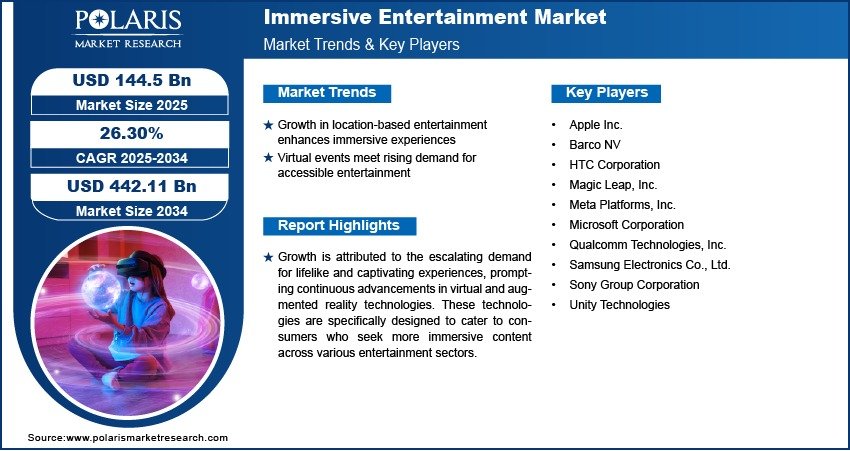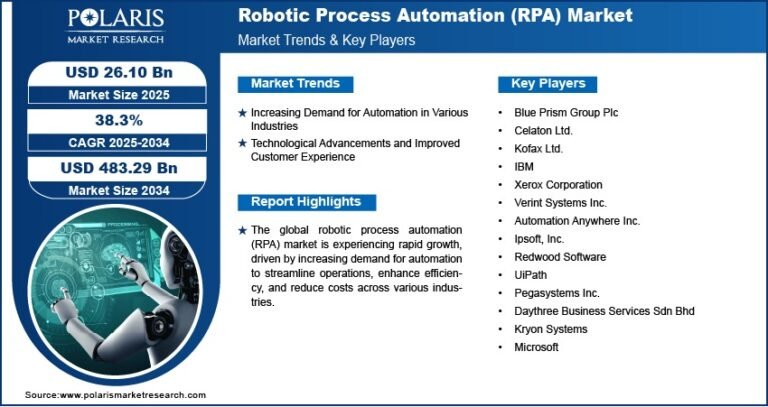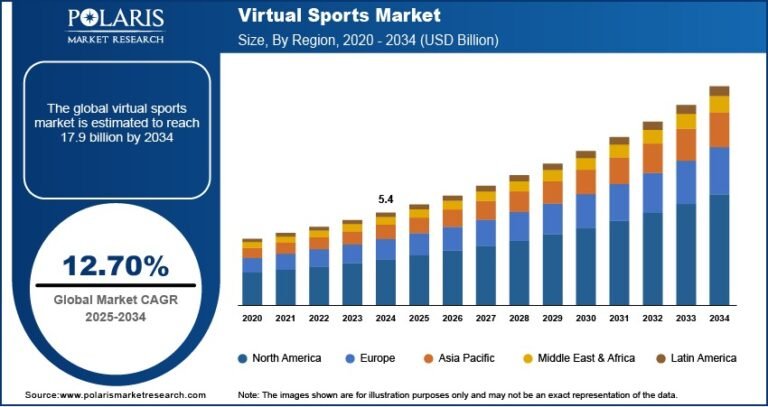Immersive Entertainment Market Projected to Reach USD 442.11 Billion by 2034 | CAGR: 26.30%

The Immersive Entertainment Market was valued at USD 114.37 billion in 2024 and is expected to grow at a CAGR of 26.30% from 2025 to 2034. This growth is fueled by rapid advancements in VR/AR technologies and a rising consumer demand for immersive and experiential content.
Key Market Trends
Rise of Ultra-Immersive Venues
- Venues such as the Las Vegas Sphere, Cosm digital domes, and Cercle Odyssey enhance sensory immersion through massive LED displays, spatial audio, holograms, projection mapping, and live 360° staging.
- These venues are expanding globally—including Abu Dhabi, Atlanta, LA, Dallas, and Detroit .
AI-Driven Personalization & Interactivity
- AI-powered systems (behavioral tracking, real-time content adjustment) deliver hyper-personalized, dynamic experiences—including location-aware guides, crowd interaction, and adaptive storytelling.
Multi-Platform Content Fusion
- Immersive entertainment spans theme parks, museums, theaters, concerts, and retail—breaking silos to create story-living environments with scent, haptics, projection, and narrative agency.
Gaming & Live Events as Core Drivers
- Virtual concerts, esports, and interactive gaming dominate consumption—propelled by VR/AR adoption, 5G connectivity, and subscription models .
- Interest in “shared experiences” like multiplayer VR events and live cinema is soaring.
Rapid Hardware & Connectivity Innovation
- Improved high-res VR/AR/MR headsets, haptic gear, motion tracking, and 5G/edge computing are enabling smoother, more accessible immersive experiences.
Metaverse, Digital Twins & Real-Time Narratives
- Immersive platforms are incorporating concepts like digital twins, metaverse-style worlds, and live data overlays to enrich experiences—both in location-based venues and virtual spaces .
Market Size & Forecast
Market size value in 2025 USD – 144.5 billion
Revenue forecast in 2034 USD – 442.11 billion
CAGR – 26.30% from 2025 – 2034
Request for Free Sample:
Industry Overview:
The immersive entertainment market encompasses technologies and experiences that blend the physical and digital worlds to create highly engaging, interactive environments. Key components of this market include virtual reality (VR), augmented reality (AR), mixed reality (MR), and extended reality (XR) platforms used in gaming, live events, theme parks, cinema, and experiential marketing. These technologies enable users to experience content in a deeply participatory manner, transforming how audiences consume entertainment. As advancements in hardware, software, and content creation accelerate, the immersive entertainment industry is evolving into a multi-billion-dollar sector with applications across consumer and enterprise domains.
Key Market Drivers & Barriers:
A primary driver of market growth is the rising consumer demand for interactive and personalized entertainment experiences, especially among younger demographics. Advancements in 5G connectivity, AI, and cloud computing are also enabling high-quality, low-latency immersive content delivery. Increased investments from major tech companies and media studios into immersive content and platforms further fuel expansion. However, high costs of VR/AR equipment, limited content availability, and concerns around user discomfort (such as motion sickness) remain key barriers. Additionally, the lack of standardization across devices and platforms can hinder widespread adoption.
Market Opportunity:
The immersive entertainment market offers vast opportunities across both consumer and commercial sectors. In gaming and sports, immersive technologies are enhancing fan engagement through virtual stadiums and live VR experiences. In education, healthcare, and retail, immersive tools are being leveraged for training, therapy, and virtual shopping experiences. The rise of the metaverse concept and growing interest in hybrid and virtual events open new revenue streams for content creators and platform providers. With continued innovation and falling hardware costs, the market is poised for significant growth, offering transformative potential across multiple industries.






